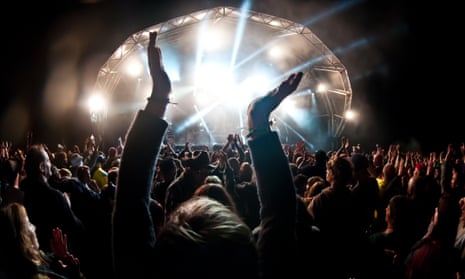Six years ago, I found the courage to publicly recount a few of my personal stories of unwanted sexual attention and harassment working in the Australian music industry.
I don’t remember a singular incident which tipped me over – it could have been when a male management colleague asked me: “Why don’t you wear something more flattering?” It could have been when two drunk, well-known festival promoters asked me to “grab us a top-shelf whisky, darling” before my band’s industry showcase, which they failed to watch.
At the time, a dozen women working at music labels and publishers thanked me for writing it. I remember the knowing in their eyes and the whispered “that happened to me too”.
That week in 2017 when #MeToo reverberated again around the world, I wept as I scrolled. Hundreds of women in the Australian music industry recalled horrific stories of sexual harassment and assault in their places of work. In venues, at festivals, in tour vans, in taxis, in boardrooms. Backstage, front of stage, on stage, in recording studios, rehearsal rooms and at their desks.
We glimpsed some momentum that year; we connected with each other, and galvanised nationally. So many women who had been around the industry for decades said then enough is enough, #MeToo and #MeNoMore. We held hope for #TimesUp and #Now.
But as the work continued, our spirits waned. The promised public reckonings of powerful players never arrived in the media, which has been stymied by Australia’s harsh defamation laws. Skilled women with decades of experience were overlooked for senior appointments, and the status quo was retained in C-Suites and boardrooms. Advocacy, public statements and media releases wreaked of performativity. The “problems” shared by women in music were out in the open but the “men problem” continued.
This week one of the Australian music industry’s most powerful men, Denis Handlin, was removed as CEO of Sony Australia, amid an investigation led by the US headquarters into a range of serious complaints about the workplace culture at its Sydney operations. According to numerous reports, two more senior executives are also on indefinite leave.
While there are no #MeToo-style allegations against Handlin himself or these other executives, and the broader investigation into Sony Australia’s workplace culture is outstanding, for many this feels like an important moment: the start of a “reckoning” in the music industry that we feared may never happen.
Within hours of this news breaking, I received a message from an industry stalwart, renowned for his roving hands and sexual propositions, saying “you would be very happy!” No doubt I feel lighter in some ways – the harm of allegedly failing to provide a safe workplace for so many employees over decades can finally be discussed openly.
A palpable sense of relief, a lightness and amazement has been rippling through some corners of the industry. Perhaps we all feel vindicated somehow, and that justice will be served. But after this relief followed disbelief, mistrust and a wariness that it won’t. There are a lot of “powerful men” out there.
If the music industry is to truly get the “reckoning” it has wanted, and needed, for so long, then it requires a reckoning with power itself. One man alone is (was) not in possession of all of it.
Other companies. Other workplaces. Other perpetrators. Other men in the music industry are complicit in who has power and how it is wielded – but historically they have not been good at taking responsibility or holding each other to account for harmful behaviour. For the reckoning to be real, this must change. Men need to be held accountable. Men need to change. Men need to share power.
Power (v) : giving what is desired or needed for support and sustenance
When a tall, powerful tree falls in the forest it creates light and space for renewal. Now is the time for every person working within the music ecosystem to find their individual power. The power to give what is needed to support all victim-survivors, and to sustain the current momentum. So where do we find that power?
I hold privilege as a middle-aged white woman. The music industry includes an increasing number of people from marginalised communities, including First Nations women and gender-diverse people. If the culture of the music industry harms and abuses cis white women, we need to recognise the further discrimination and harm that befalls others. There is power in diversity.
Victim-survivors live with precarious incomes, mental health challenges and trauma. These past six years I retreated to look after myself, my family, my mind, body and recharge the spirit. There is power in healing ourselves.
When I was 30 and pregnant, I could not find more than a handful of women over 45 in the music industry, with or without children. Now there are scores of mothers and women over 45. We are empowered and not afraid. We support and offer advice to those coming behind us, and we are inspired by their courage, strength and fierce power. There is power in the collective wisdom of those who led the way. There is power in young people being in the engine rooms for change.
As women and diverse people working in the music industry we share lived experiences across the spectrum of unwanted sexual attention, harassment and assault. Of racism, discrimination, bullying, minimisation, verbal abuse and intimidation. Of being gaslit, ignored, trivialised, silenced, objectified and scapegoated. There is power in our stories.
There is power in online activism and as sites for justice. There is power in individual accountability. There is power in community accountability. There is power in naming perpetrators. There is always power in music. Be seen. Be heard.
Leanne de Souza has worked as an artist manager for decades, and is currently the co-owner of Nightlife Music. In 2019 she was awarded the National Live Music Award for excellence in support of the industry
